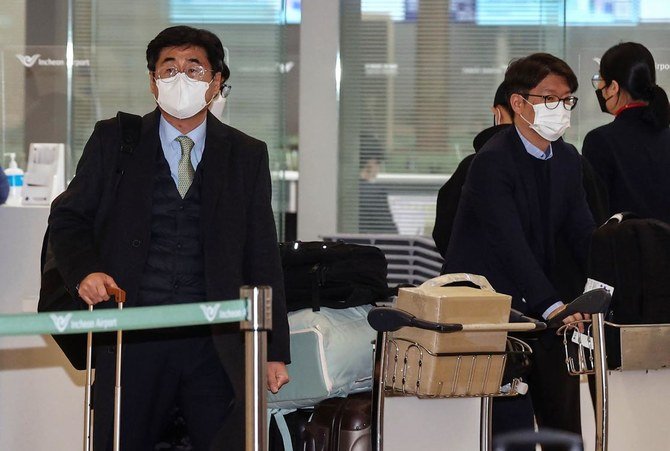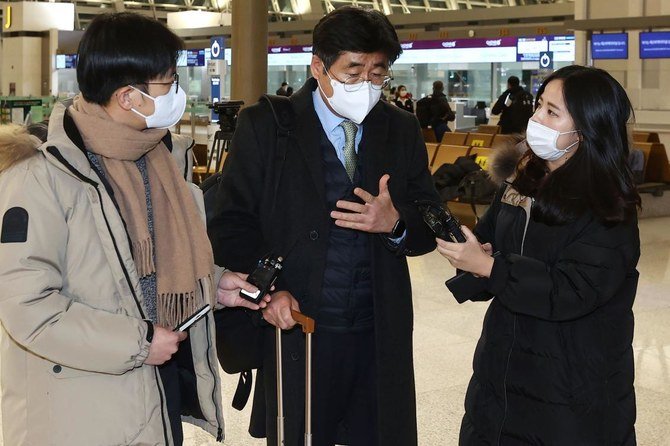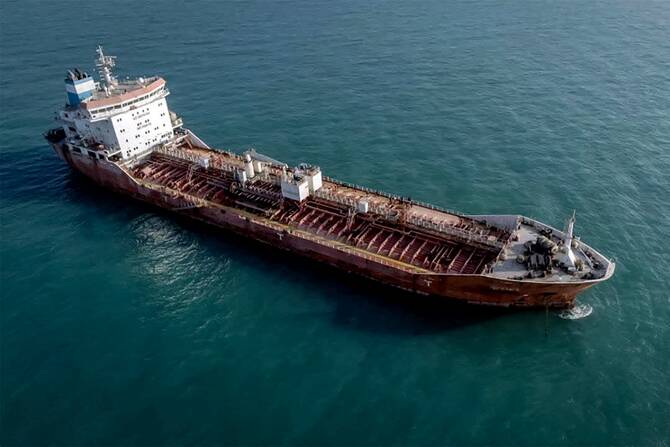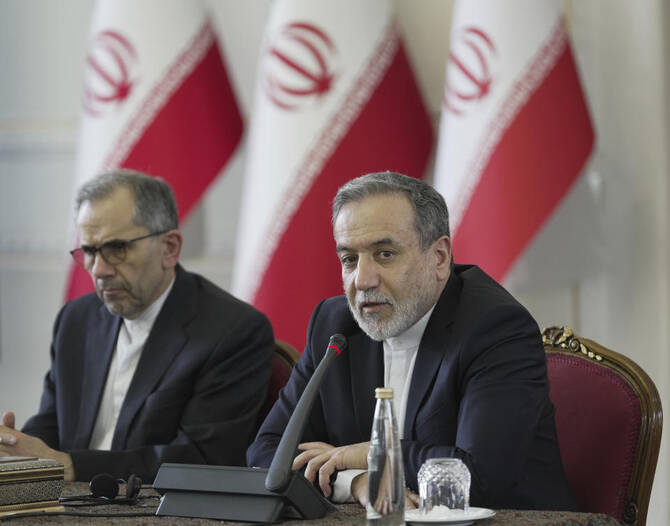SEOUL: A Seoul government delegation sent to Tehran on Thursday will attempt to secure the release of a South Korean oil tanker seized by Iranian authorities near the Strait of Hormuz, the foreign ministry’s top official said.
The South Korean-flagged MT Hankuk Chemi with 20 crew members on board was traveling from Saudi Arabia to the UAE when it was intercepted by Iran’s Islamic Revolutionary Guard Corps (IRGC) on Monday and taken to the port of Bandar Abbas.
According to Iran, the ship violated environmental protocols — claims that the vessel’s operator has denied.
“We will ask them to exchange due evidence or data to verify the facts,” Koh Kyung-sok, South Korea’s director-general of Africa and Middle East affairs, told reporters before boarding a plane at Incheon International Airport, west of the capital.
Koh, who is leading the delegation, said that besides meeting their Iranian counterparts, Korean diplomats will hold talks with other Iranian stakeholders to resolve the issue.
The delegation will travel to Iran via Qatar.
While officials in Seoul say they are seeking a diplomatic solution to the standoff, the South Korean navy’s anti-piracy unit was deployed in waters near the Strait of Hormuz on Tuesday to “ensure the safety” of Korean nationals on board the MT Hankuk Chemi.
The vessel’s crew of 20 includes nationals from South Korea, Indonesia, Myanmar and Vietnam. All are reportedly safe.
It remains unclear if negotiations between the South Korean delegation and Iranian authorities will be successful.
When Seoul announced the plan to send the delegation earlier this week, Iran’s foreign ministry spokesman, Saeed Khatibzadeh, was quoted by the state news agency IRNA as saying that the South Korean government’s behavior is “incomprehensible.”
Khatibzadeh claimed that the matter is moving “along its legal path and does not require a diplomatic trip.”
Diplomatic sources and South Korean experts believe the ship’s seizure is linked to tensions over the freezing of Iran’s money in South Korean banks under US financial sanctions.
Iranian assets worth $7 billion in two Korean bank accounts have been frozen after the Trump administration withdrew from a landmark nuclear deal with Tehran in 2018 and toughened sanctions against the Islamic Republic.
In an effort to end the impasse, Seoul and Tehran discussed using the frozen money to purchase $1 billion of medical equipment. Iran has also reportedly requested the use of $10 million or more from the frozen assets to buy coronavirus vaccines from the global vaccine procurement facility COVAX.
Jung Sang-ryul, a professor at the Institute of Middle Eastern Affairs at Myongji University in Seoul, believes that the current standoff will be solved through diplomatic channels.
“There is a high possibility the confrontation will be settled diplomatically,” he told Arab News, adding that Seoul-Tehran relations are unlikely to be compromised by the incident.
The two countries enjoy strong economic ties, with South Korea the third-largest importer of Iranian oil in 2017. South Korea also became the biggest buyer of Iranian condensate, which its petrochemical industry processed in refineries designed to handle the commodity.
However, following US sanctions, South Korea’s oil imports from Iran fell from $7.8 billion to $2.1 billion by 2019 with no further imports last year.
“Relations between the US and Iran are the problem, not between South Korean and Iran,” Jung said.























